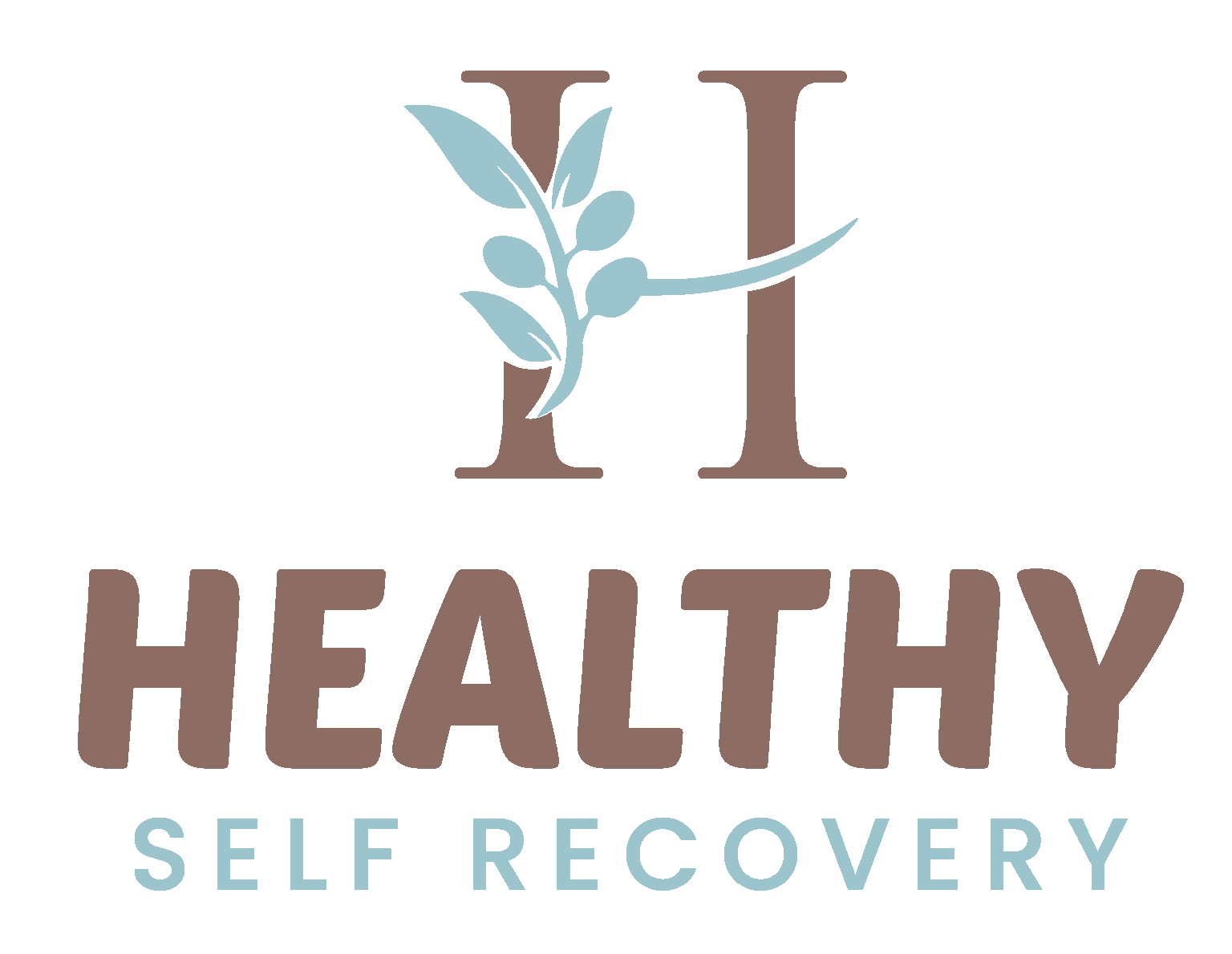Eating disorder recovery is a long and challenging journey. Everyone goes into it with a high level of ambivalence. Motivation will wax and wane and relapses and slip-ups are common. Although anyone can fully recover from an eating disorder not everyone will. One powerful resource that can make a significant difference in achieving true and lasting healing is eating disorder recovery coaching.
In this blog post, I will outline the 5 key benefits of working with a certified eating disorder recovery coach. As well as how this is something you may want to consider as a valuable addition to your current support structure.

5 Key Benefits of Eating Disorder Recovery Coaching
1. Someone Who Actually Gets It
Many eating disorder coaches including myself have had their own struggles with eating disorders and have successfully navigated the path to recovery. While it is not a prerequisite for a coach to have personally recovered it can profoundly impact the support provided. This personal experience could be the pivotal element that changes the trajectory of someone’s recovery journey.
Hope and Role Models
Often it may be the first time that someone has come across a person who has been in their shoes and has emerged on the other side of the battle. Having a recovered role model can be transformative as it creates a sense of hope. Something which is often missing particularly for those who have grappled with their eating disorder for a long period of time. Hope is a crucial element of recovery. Providing a guiding light to aim for particularly when recovery seems overwhelming and a challenge too far. Knowing that someone else once stood in their shoes and found a way to throw off the shackles of an eating disorder allows someone to be able to envision that they too may heal.
The road to recovery from an eating disorder will always look different for every person. Based on their experience, circumstances, and background. The struggles of an eating disorder are extremely private and individual. They are filled with difficult and complex thoughts, feelings, and doubts. Working with someone who truly understands what you are going through and has had similar thoughts, feelings, and insecurities through their own recovery is very reassuring. It creates a sense of connection and validation. Which can be immensely comforting as you navigate your own challenges of recovery.
The Power of Unconditional Support
Because coaches like myself have often faced long and extreme struggles with our own recovery, we have a unique appreciation for the power of unconditional support. Nobody understands the implications of this support more than someone who has been on this very journey. This makes for a very compassionate experience. For many clients, working with a coach may be the first time that they have the opportunity to truly be honest about their thoughts and experiences. This creates a safe space where they can be vulnerable without fear of judgment. Knowing that they have someone who they can truly trust who is fully committed to their well-being. Who they can trust to be there for them unconditionally.
However, it is essential to clarify, that unconditional does not mean that we will shy away from challenging or pushing back against the eating disorder. In fact, because we have grappled with our own eating disorder voice more than anyone else. A recovered coach is particularly adept at being able to distinguish between thoughts that come from the eating disorder and ones that come from the healthier, more rational self. This insight allows us to provide a balanced approach supporting clients to strengthen the healthy part of themselves. Empowering them to be able to recognise themselves when they need to challenge their eating disorder.
2. Support Around The Clock
For many people struggling with an eating disorder the journey to recovery can be very lonely. They may have distanced or isolated themselves from their friends and family because of feelings of shame, anxiety, and a sense of being misunderstood. Family members, friends, and people around them may be unsure or simply at a loss as to how best to support them. This leads to a cycle of increasing isolation and loneliness. Where the person feels totally alone and unsupported during the critical time of recovery. Unlike friends or family members, a coach is trained in the complexities of an eating disorder and many have their own experience of the tricky and complicated feelings that accompany this so are best placed to offer support.
Active and real-time support plays a pivotal role in recovery. Unlike therapists or dietitians who offer scheduled and structured sessions a recovery coach offers ongoing support around the clock via messaging or phone calls. Knowing that there is a dedicated someone to reach out to when eating disorder thoughts are loud or overwhelming or when a situation feels challenging and that they will be able to provide advice, support, encouragement, and practical strategies for coping can be incredibly reassuring. This access to real-time support that is specific to a person’s actual needs can make a significant difference to someone’s recovery. Bridging the gap between formal treatment and day-to-day recovery.
3. Motivation, Accountability, and Hope
Feeling conflicted about recovery is extraordinarily normal part of the journey. It’s common to want something to change and to yearn to be able to think and behave around food like other people. At the same time, there is a lot of reluctance to lose the safety, comfort, and identity that comes with an eating disorder. This internal tug of war creates a lot of confusion and hesitation. In this instance having someone who can help you to find your guiding values and your motivating “Why” for recovery is crucial.
Whilst the initial push for recovery can be very daunting with the support it becomes more manageable. Having someone who is there to remind you and keep bringing you back to this why when things get difficult, or the road seems too long, or just when your motivation for recovery starts to wane is a game changer for lasting change.
Overcoming Fear and Paralysis in Recovery
It’s incredibly normal in recovery to want to make changes and even agree to these with a dietitian or therapist yet when the moment comes to implement these changes to feel completely paralyzed by fear. This is where a coach becomes invaluable. Coaches are there not just to give practical support but to facilitate action. By holding you accountable to your goals and changes with regular check-ins they provide a structured framework that encourages pro-recovery behaviour. This accountability helps motivate you to take tangible steps forward and will also help you to celebrate the small wins in the process and to recognize the progress and milestones you cross no matter how small.
Eating disorder recovery is undeniably hard work and can often take a long time. Holding onto hope throughout the journey can be challenging. As mentioned before holding onto hope can be elusive in eating disorder recovery. Especially if the eating disorder struggle has been really long but it is a crucial part of recovery. Yet nurturing hope is a critical component of the recovery process. Working with someone who has recovered themselves is helpful in keeping hope strong.
Their journey serves as proof that recovery is possible. Sometimes there are moments when hope feels impossible. In that instance, I as your coach, will hold that hope for you, grounded in my belief that recovery is possible for everyone. Nevertheless, there will be moments when hope feels utterly unattainable. In those difficult instances, as your coach, I will be here to hold that hope for you, grounded in the unwavering belief that recovery is possible for everyone.

4. Reduced Isolation and Enhanced Connection
Eating disorders thrive on isolation. Engaging in eating disorder behaviours is rarely compatible with having a social life or being with other people and so slowly a sufferer’s world begins to get smaller. Likewise being undernourished and consumed by food thoughts is likely to make someone tired, irritable and unable to connect with people around them. When questioned on their eating habits the eating disorder part of a person tends to be very defensive. Again this creates this situation where the person becomes increasingly isolated and rather than recognising this the tendency is to double down on the eating disorder as a way to combat the isolation. One of the best ways to strengthen the healthy part of you is to learn to turn to other people as opposed to turning to your eating disorder and to start to cultivate true connections with people.
However at first, this can be daunting: Eating disorders are often seen as reliable, secure, and a known entity whilst people are not. Therefore finding someone who is not only reliable, trustworthy, who is not going to say the wrong thing, and who will not collude with the eating disorder is very difficult. This is why having an eating disorder recovery coach is pivotal in the first stages of recovery. Your recovery coach knows you, knows your eating disorder, and is committed to being you when you need them. This is the very first step in building trust, fostering connections with other people, and empowering people to turn away from their eating disorders and reclaim their lives.
5: A Safe, Non-Judgmental Space
Eating disorder coaching is a unique space to explore thoughts and feelings without fear or judgment. It is a supportive setting where the experience of disordered eating can be shared and discussed freely. Undoubtedly therapy also provides a safe space however the powerful differentiator of working with an eating disorder recovery coach such as myself is that I too have had an eating disorder. Having personally struggled with the pain of an eating disorder I intimately understand the thoughts, feelings, and struggles of recovery and relapsing. This shared understanding creates a level of trust which they don’t have with others. Oftentimes clients tell me that there are certain thoughts or feelings they don’t share with their therapist or dietitians because they are ashamed that they may be too disordered or irrational.
However knowing that I too have had similar thoughts, feelings, and behaviours reassures me that these feelings are valid and that your experience is not as unique or isolated as you may think and means that everything is on the table and no thought is too disordered to be expressed. Knowing that you will not face judgment or dismissal, but genuine understanding and compassion fosters a sense of safety and allows for vulnerability. Vulnerability is a vital aspect of the recovery process. When clients feel safe, they are more likely to confront difficult truths and to be able to dismantle the shame and secrecy that mediate disordered eating behaviours. Trust, honesty, and support are the basic ingredients for learning self-compassion and self-acceptance which pave the path to recovery.
Client Testimonials: Real Words, Real Impact
And just in case you still aren’t convinced, here is the same but in the words of some of my clients:
- “Her ability to create a safe space where I feel comfortable to explore how I’m feeling and what may be holding me back has been incredibly helpful.”
- “From the first time I spoke to Marianna, she immediately put me at ease and I felt I could trust her – which doesn’t come easy! Marianna’s lived experience is similar to mine and this really helps as I feel she gets me but also that she knows when the ED is popping up and needs challenged and called out”
The Next Step in Your Recovery: You’re Not Alone
Are you ready to take the next steps in your recovery journey with Healthy Self-Recovery? Everyone’s eating disorder and journey to recovery is unique. But working with a holistic recovery coach means that you don’t have to face it alone. You will have the trained support of someone who understands your struggles first hand and can truly relate to what you are going through.

Begin Your Path to Recovery With Eating Disorder Recovery Coaching in the UK
Are you ready to take control of your recovery journey? At Healthy Self Recovery, our personalized eating disorder recovery coaching in the UK provides the support and guidance you need to overcome the challenges of healing. Let us help you build a path forward, one step at a time, with compassion and expertise. Follow these three simple steps to get started:
- Contact me to schedule a free discovery call to see if Eating Disorder Recovery Coaching is right for you.
- Begin meeting with me, Marianna Miles, a skilled eating disorder recovery coach
- Start your path to recovery one step at a time.
Other Services Offered at Healthy Self-Recovery
As an eating disorder recovery coach, my goal is to support you through every stage of your healing journey and help you make lasting changes. In addition to tailored eating disorder recovery coaching sessions that address the thoughts, emotions, behaviors, and anxieties associated with your eating disorder, I offer text support to provide encouragement during difficult moments. I also offer meal support sessions in a safe space where you can challenge food rules and practice new coping strategies. By collaborating with your medical team, we ensure your treatment goals are seamlessly integrated into our work. Together, we’ll design a personalized recovery plan that empowers you to create a life of healing and fulfillment beyond your eating disorder. I proudly offer my services across the UK, including England, Scotland, and Ireland, to provide the support you need, no matter your location.








